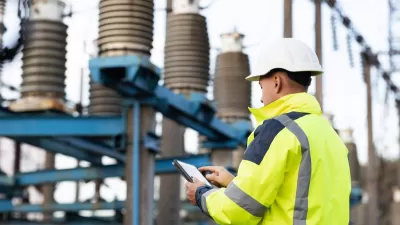Technology must be harnessed in cities to allow citizens to "talk back" to cities and enable more user-driven change, according to this op-ed from economist Saskia Sassen.
Sassen argues against the current trend of creating "intelligent cities" that leave no room for dialogue with citizens.
"We can think of the multiple ways in which the city talks back as a type of open-source urbanism: the city as partly made through a myriad of interventions and little changes from the ground up. Each of these multiple small interventions may not look like much, but together they give added meaning to the notion of the incompleteness of cities and that this incompleteness gives cities their long lives, thereby outlasting other more powerful entities.
In sharp contrast, I think that the model of "intelligent cities" as propounded by and the telepresence efforts of Cisco Systems misses this opportunity to urbanize the technologies they mobilize, and futilely seeks to eliminate incompleteness. The planners of intelligent cities, notably Songdo in South Korea actually make these technologies invisible, and hence put them in command rather than in dialogue with users. One effect is that intelligent cities represent closed systems, and that is a pity. It will cut their lives short. They will become obsolete sooner."
FULL STORY: Open Source Urbanism

Alabama: Trump Terminates Settlements for Black Communities Harmed By Raw Sewage
Trump deemed the landmark civil rights agreement “illegal DEI and environmental justice policy.”

Study: Maui’s Plan to Convert Vacation Rentals to Long-Term Housing Could Cause Nearly $1 Billion Economic Loss
The plan would reduce visitor accommodation by 25% resulting in 1,900 jobs lost.

Planetizen Federal Action Tracker
A weekly monitor of how Trump’s orders and actions are impacting planners and planning in America.

Wind Energy on the Rise Despite Federal Policy Reversal
The Trump administration is revoking federal support for renewable energy, but demand for new projects continues unabated.

Passengers Flock to Caltrain After Electrification
The new electric trains are running faster and more reliably, leading to strong ridership growth on the Bay Area rail system.

Texas Churches Rally Behind ‘Yes in God’s Back Yard’ Legislation
Religious leaders want the state to reduce zoning regulations to streamline leasing church-owned land to housing developers.
Urban Design for Planners 1: Software Tools
This six-course series explores essential urban design concepts using open source software and equips planners with the tools they need to participate fully in the urban design process.
Planning for Universal Design
Learn the tools for implementing Universal Design in planning regulations.
Caltrans
Smith Gee Studio
Institute for Housing and Urban Development Studies (IHS)
City of Grandview
Harvard GSD Executive Education
Toledo-Lucas County Plan Commissions
Salt Lake City
NYU Wagner Graduate School of Public Service



























